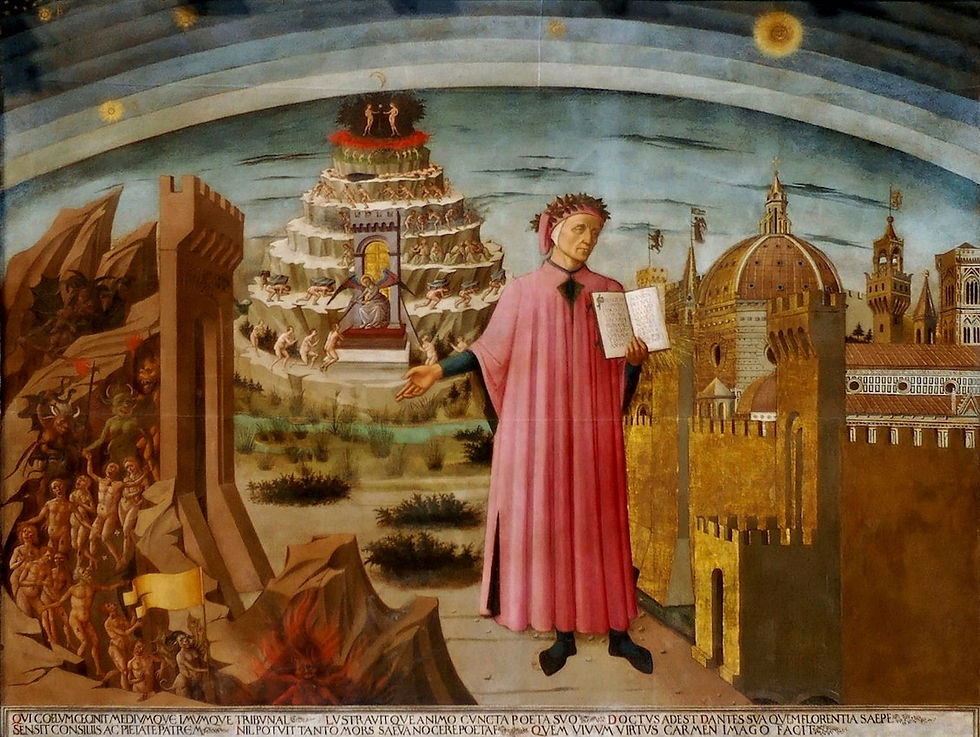Freedom in Inability
- Nov 18, 2024
- 3 min read
Updated: Dec 5, 2024

Free Will is often defined as the ability to do otherwise. This poses a problem for the Christian: the traditional understanding of Heaven, differing from the Garden of Eden, requires mankind being unable to sin; loving God perfectly, unable to do otherwise. The paradox is obvious: can one love God freely without being able to not love him? St. Augustine thought so. In his City of God, he writes concerning believers in Heaven:
Neither… will they fail to have free choice because sins will not be able to delight them. Indeed the one is more free who has been freed from the delight of sinning unto the unchangeable delight of not sinning. For the first free choice that was given to humans, when they were created upright, could avoid sinning, but could also sin but this last [free choice], on the other hand, will be to this degree more powerful, that it will not be able to sin.[1]
By distinguishing between moral inability and actual inability, Augustine creates a framework in which all the biblical data make sense. Just like fallen man could choose to not sin, but will never will, so too will the heavenized man be hypothetically able to sin, but never will. The strength of the redeemed man’s desire for God, his will and intellect redeemed by grace, will never falter—man will be freer than Adam. Our natures are inherently good (what Pope Francis got right), but desperately corrupted because of sin (what he got wrong). As Thomas Aquinas argued, “The soul naturally moves towards God,”[2] but unnatural desires have become the post-fall norm for mankind. Through God’s grace, which restores and renovates our souls, this alien corruption is removed like barnacles are from a ship, allowing our souls to once again seek the good they desire. We are freed from unnatural desires, free to love God with pure intent, and free from falling again into sin.
Like the Beatles, Dante believes that all you need is love—God’s love. Love is not coercive, hence Beatrice’s statement in Paradiso that “if the will won’t will, nothing can force it,”[3] and Peter Damian’s assertion, “Love is no bondsman in this court, but guide / To paths eternal providence designed.”[4] In Purgatorio, Dante stresses that the more a person’s will is brought into alignment with God’s will, the freer it is. God’s love unobtrusively works within the will “without doing violence to it,”[5] as Aquinas argues, to bring it into conformity with his will. Virgil instructs Dante of this, saying, “The will itself attests its own purgation; / Amazed, the soul that’s free to change its inn / Finds its mere will suffice for liberation.”[6] This is why as the two of them climb up the cornices in Purgatory, Dante’s soul grows lighter and lighter, freer and freer, and even feeling his feet “grow[ing] wings.”[7]
For Dante, Aquinas, and Augustine, once the will has finally been purified, it is forever freed from unnatural desires, unable to choose them. God, without coercion, through love and sanctification, moves the will back towards him. Man’s will is not determined by the stars, but thanks to divine grace does freely choose “the love that moves the sun and other stars.”[8]
Bibliography
[1] St. Augustine, De civitate Dei, xxii.30.
[2] Louise A Mitchell, “Free to Be Human: Thomas Aquinas’s Discussion of ‘Liberum Arbitrium,’” New Blackfriars 96, no. 1061 (2015): 25. http://www.jstor.org/stable/24766316.
[3] Dante Alighieri, The Divine Comedy III: Paradise, trans. Dorothy Sayers and Barbara Reynolds (London: Penguin, 1962), IV.76.
[4] Dante, Paradise, XXI.74-75.
[5] Thomas Aquinas, Summa contra Gentiles, III.88-89.
[6] Dante Alighieri, The Divine Comedy II: Purgatory, trans. Dorothy Sayers (London: Penguin, 1955), XXI.61-63.
[7] Dante, Purgatory, XXVII.123.
[8] Dante, Paradise, XXXIII.145.

Comments